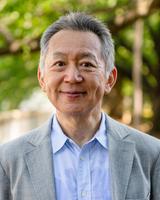イベント開催報告 エネルギー・環境
CIGS エネルギー環境セミナー "Taiwan Energy Transition for the harmonization of economy, energy and environment"
2017年12月14日(木)
16:00
~ 17:30
開催
会場:キヤノングローバル戦略研究所 会議室3
日本ではエネルギー多消費産業と言えば鉄鋼・セメント・石油化学・紙パルプに非鉄金属と、いわゆる素材産業であって、いずれも1973年のオイルショック以前に発達した産業ばかりである。これに対して、台湾では電子産業が最大の電力多消費産業である。この電子産業とはノートパソコンや液晶ディスプレイおよびその部品等のことであり、産業部門GDPの47%を叩き出している。その一方では産業部門の電力消費の35%を占めている。
この台湾の電子産業の成功を支えた一つの要因が安い電力価格であった。国際エネルギー機関(IEA)の数字によると、2016年の電力価格は産業用が7.6セント、家庭用が7.9セント程度であり、対岸の中国沿岸とほぼ同じ水準だった。これに対して日本は産業用が15セント、家庭用が22セントとなっており、大幅に隔たりがある。このような台湾の安い電力は、石炭火力・原子力を軸とした電源構成で支えられてきた。
台湾は2015年に国際合意されたパリ協定に参加していない。国連に加盟していないためである。しかし逆にそれがゆえに台湾は国際社会への参加を強く渇望しており、また、国内の環境対策世論の盛り上がりを受けて、諸先進国並みの野心的な温暖化対策を策定した。CO2排出量は、2005年以降現在までほぼ横ばいで推移してきたところ、2015年を基準に2030年までに20%削減、2050年には50%削減となっている。再エネの発電設備容量は2025年までに2700万kW超、発電電力量に占める再エネの比率は20%で、このうち半分を太陽電池で、また4分の1を洋上風力で賄うとしている。
野心的なCO2と再エネの目標を立てた一方では、現在の蔡英文政権になってから、2025年までに脱原発をすることも決めた。今後の電源計画を見ると、LNG火力発電所を毎年建設して需給のバランスをとることにしている。こうしてみると、安価な原子力・石炭をやめ、相対的に高価な太陽光・洋上風力を導入する一方で、LNGには燃料価格高騰の恐れがあり、他方では再エネ導入に合わせて電力系統の強化も必要となる。このような政策によって、電力価格が高騰する懸念がある。台湾政府はイノベーションによってコスト低減を図るとしているが、今のところ、価格についての予測は発表していない。
質疑では、電力価格の高騰によって電子産業の一部が空洞化し、台湾経済が失速する事態は避けられるか、等の点が議論された。
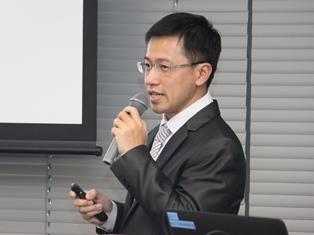
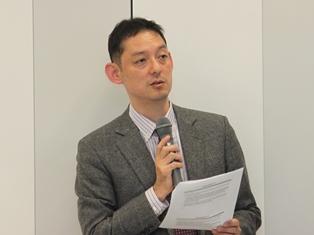
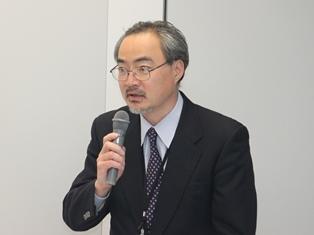
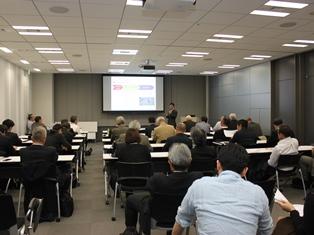
(左から潘氏、堀井氏、杉山氏)
開催概要
題目:"Taiwan Energy Transition for the harmonization of economy, energy and environment"
発表者:潘 子欽(PAN Tze-Chin)
(Senior researcher, The Industrial Technology Research Institute, Taiwan)
モデレーター:杉山 大志 (キヤノングローバル戦略研究所 上席研究員)
ディスカッサント:堀井 伸浩(九州大学 准教授)
プログラム
ProgramPDF:252KB
発表資料
潘 子欽 発表資料PDF:2.29MB
ディスカッション用資料(堀井 伸浩)PDF:180KB
開催趣旨
Taiwan has been successful in developing her industries supported by cheap and stable electricity supply, mostly by coal, natural gas, and nuclear power. Electronics industry has been particularly successful, and it consumed as much electricity as 18% of national total in 2016.
However, Taiwan's energy policy is at the crossroad, just like Japan.
Taiwan and Japan have similar geographical features such as many natural disasters and high population density. In addition, we are facing the same energy challenges: economic growth mainly driven by manufacturing sector, high dependence on import of energy, active environmental movements against coal and nuclear power, and heated debates on the power shortage risk and the future electricity supply structure. Furthermore, Taiwan, like Japan, announced ambitious 2030 targets of CO2 reduction. Finally, we share the similar political value and security concerns.
As close friends facing the same problems, Taiwan and Japan can learn from each other and avoid unnecessary failures. In this presentation, Dr. Pan will explain the Taiwan's energy situation, the challenge of energy transition, and the key policy measures. He looks forward to having a discussion with Japanese experts and audience.
発表者紹介
Dr. Tze-Chin Pan is a senior researcher in the Industrial Technology Research Institute (ITRI) and serves as department manager of industrial energy efficiency team. He earned his PhD degree in environmental engineering from National Chiao Tung University in 2009. Dr. Pan has worked in the Green Energy and Environment Research Laboratories of ITRI since 2011. His research field covers a variety of energy policy issues. In 2012, Dr. Pan focused on the renewable energy development strategy to promote Taiwan solar energy industry. In 2013, Dr. Pan supported the Bureau of Energy to simulate the long-term energy demand and supply plan and improve the energy policy communication between the government and the public. From 2015, Dr. Pan participates in the energy efficiency project funded by Bureau of Energy to implement the policies of energy audit scheme, mandatory electricity-saving target, and energy efficiency regulations for industrial sector.
